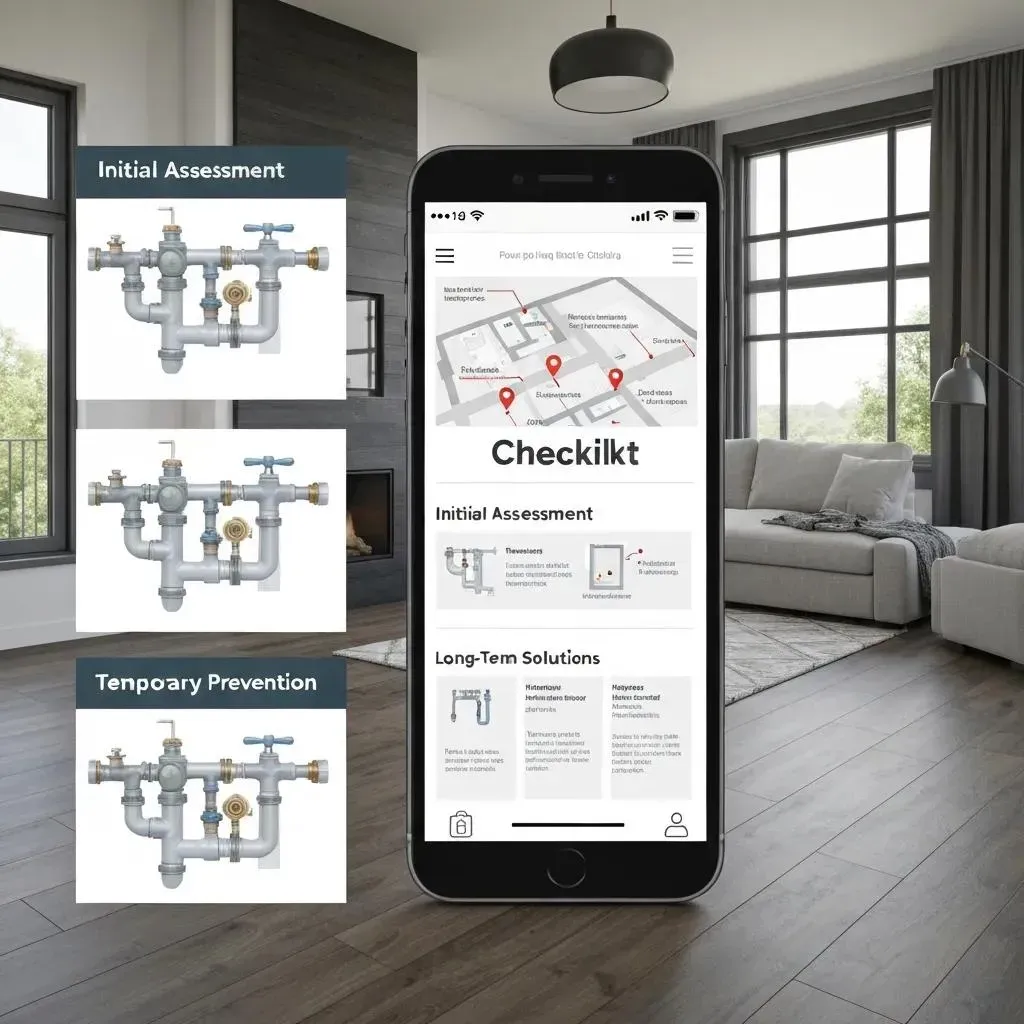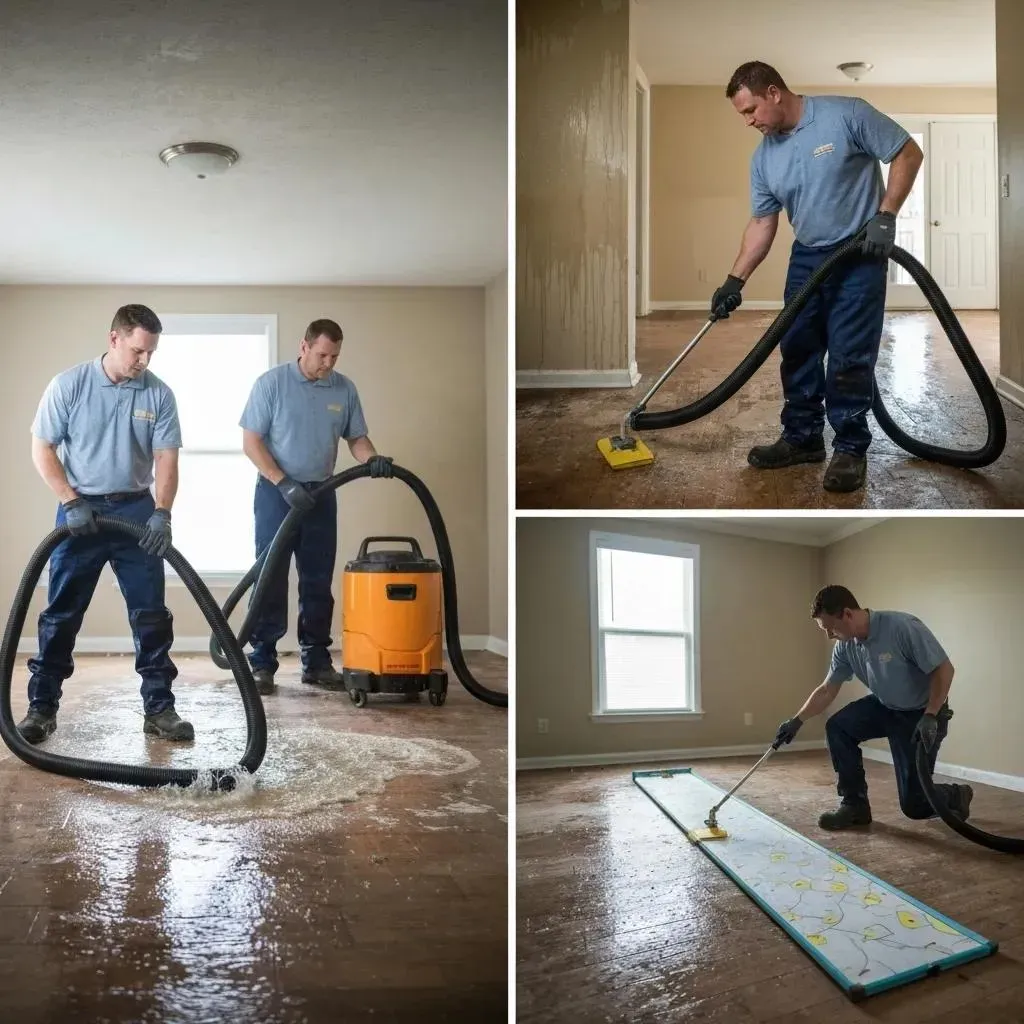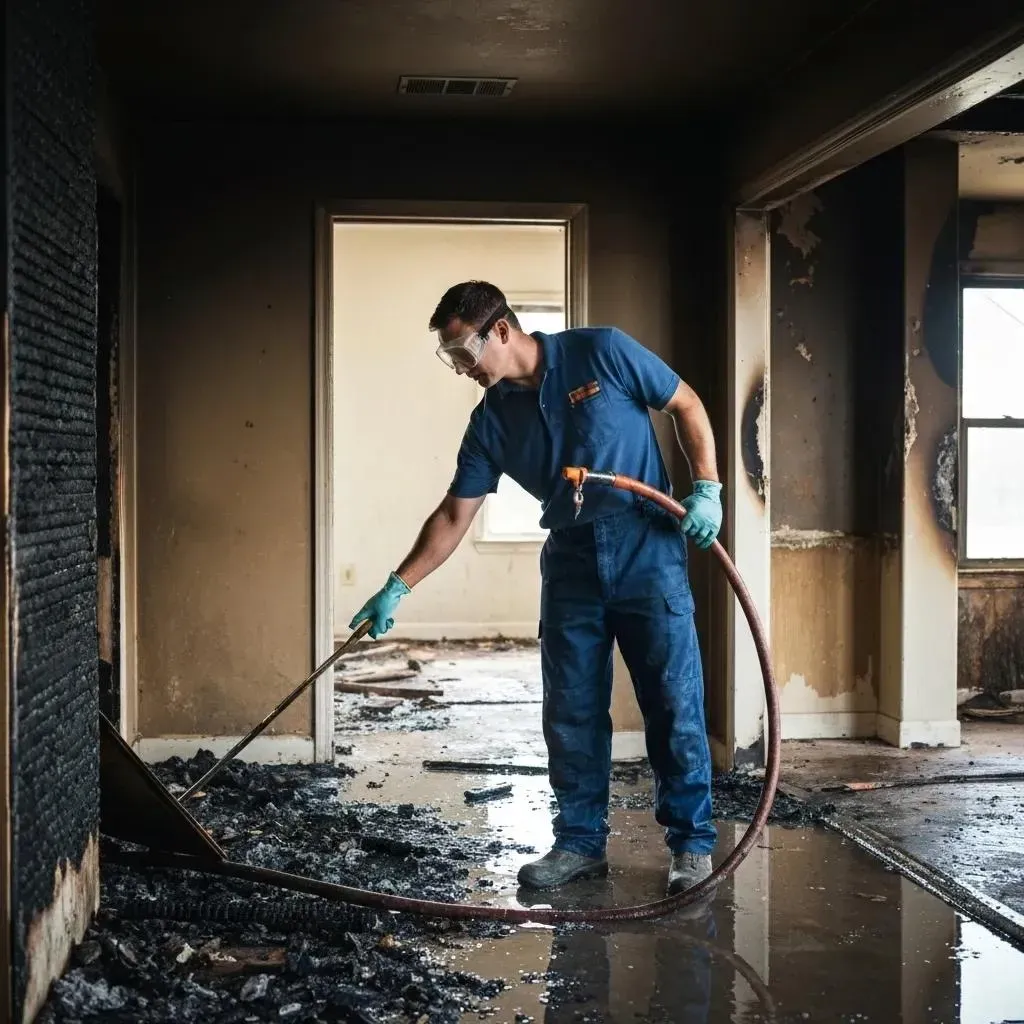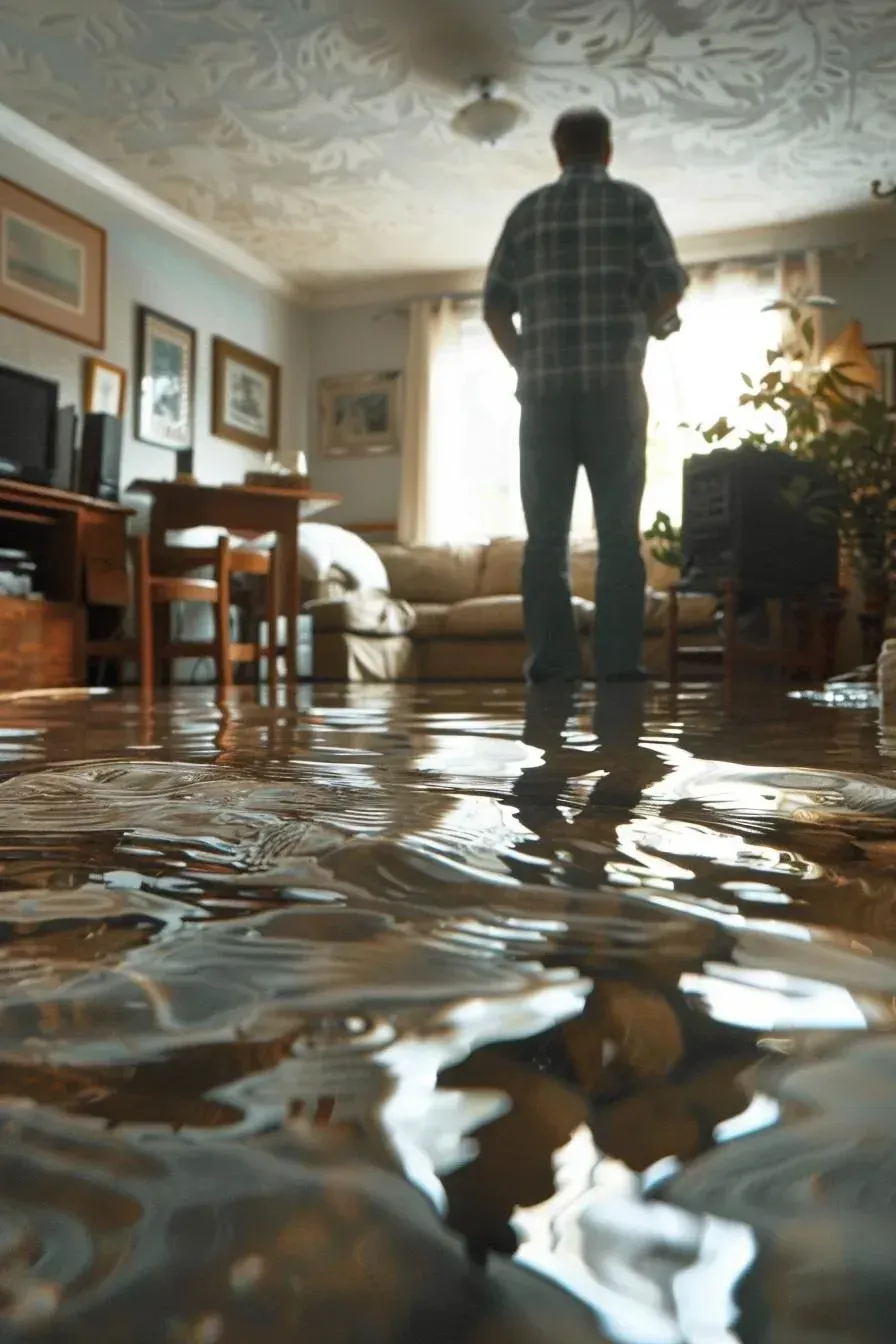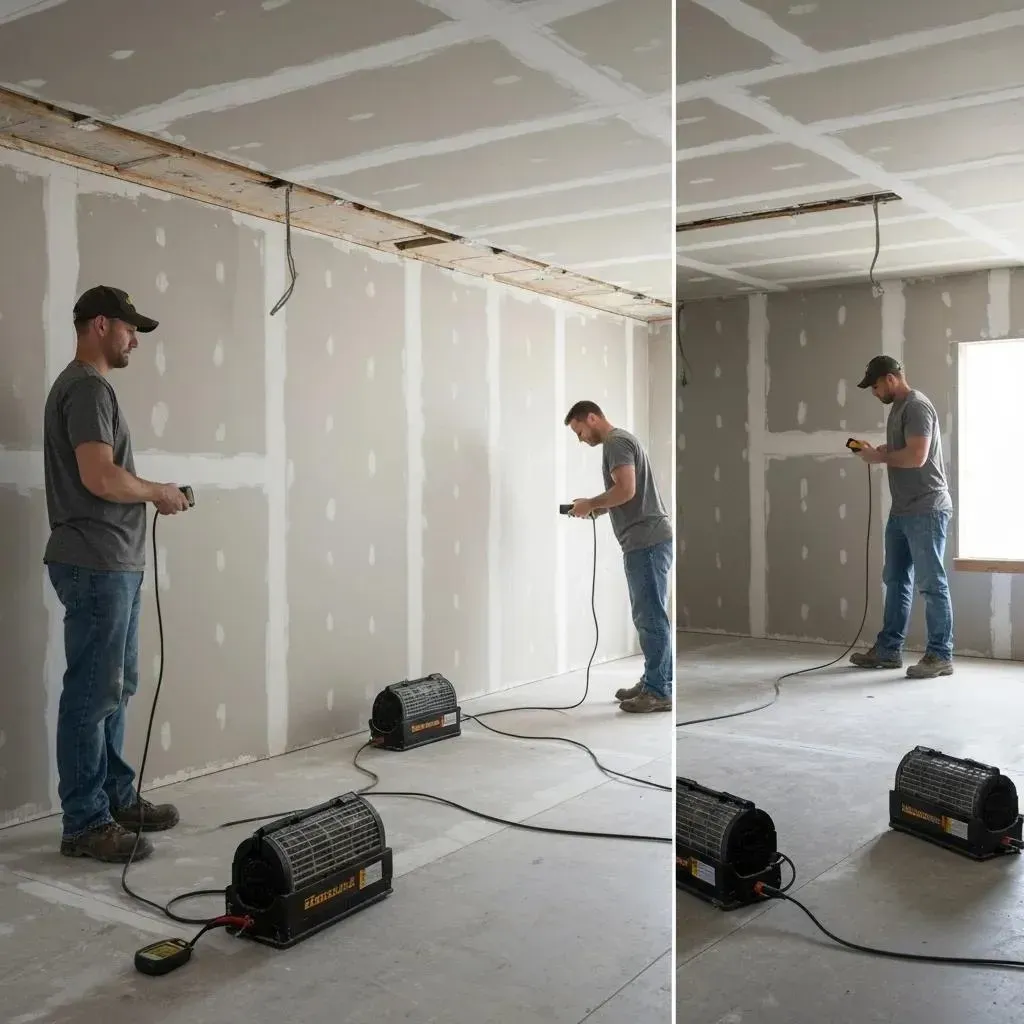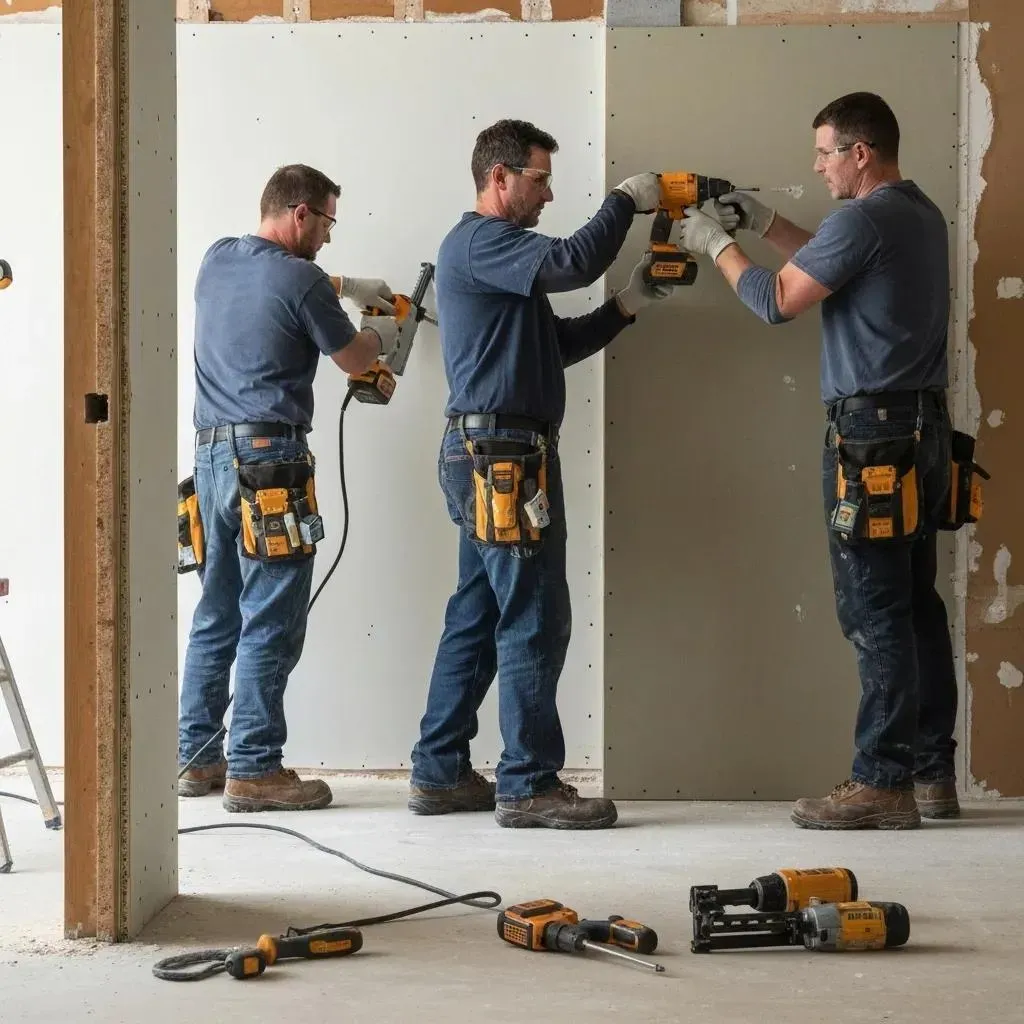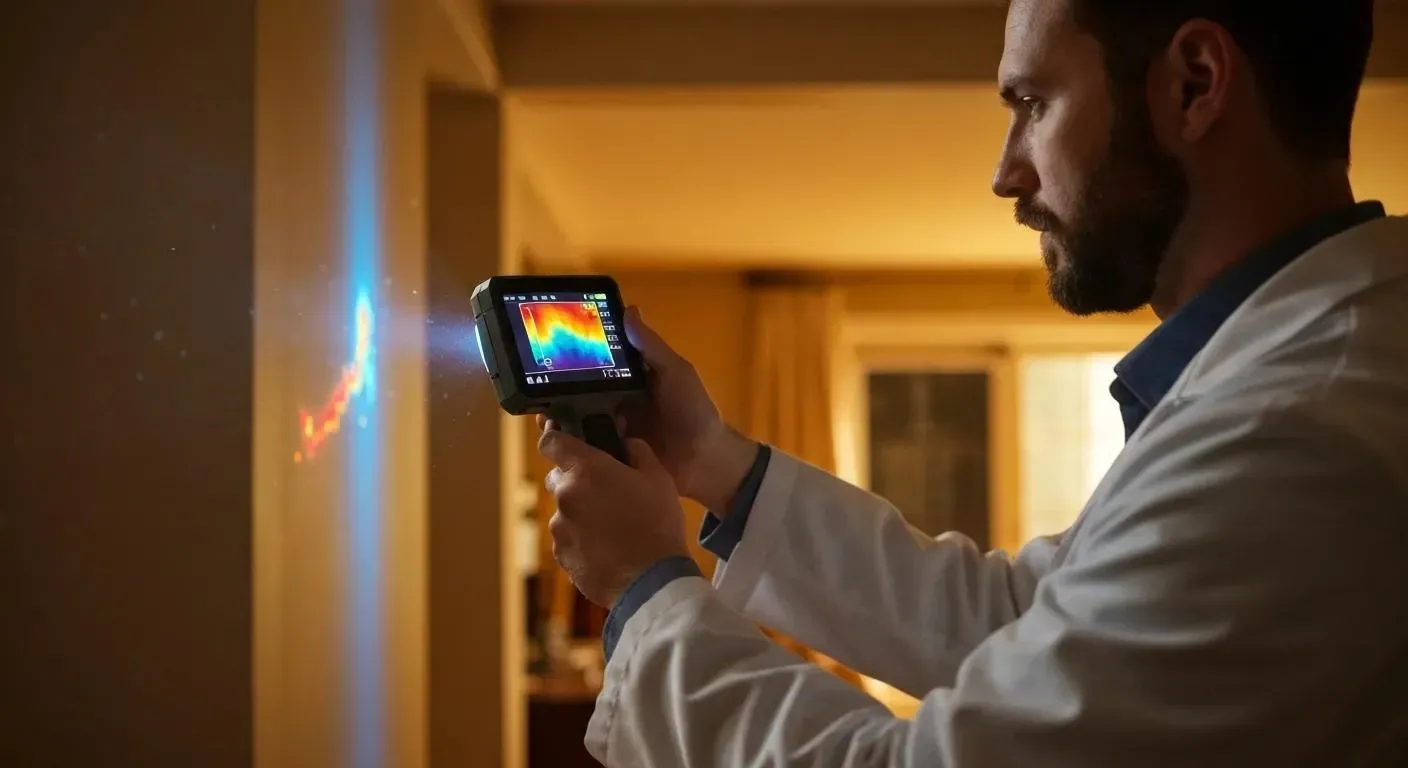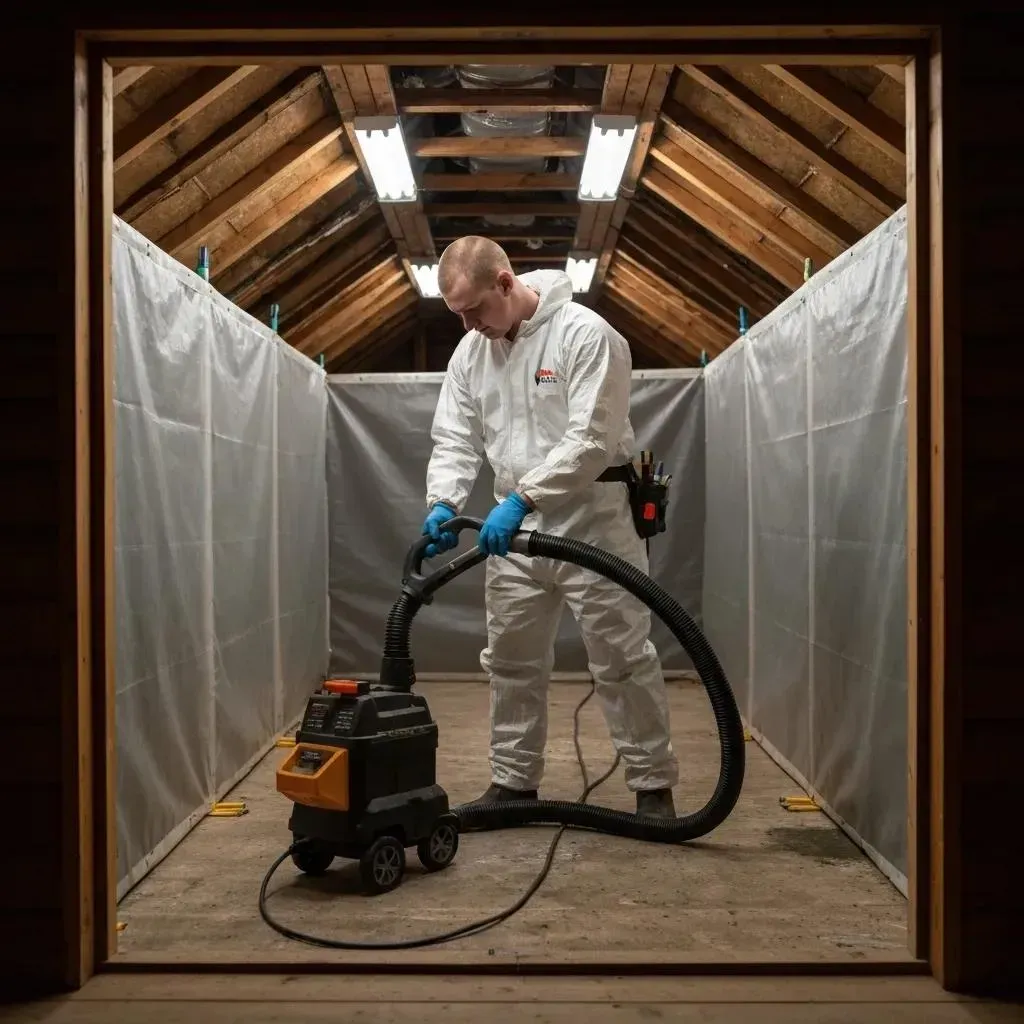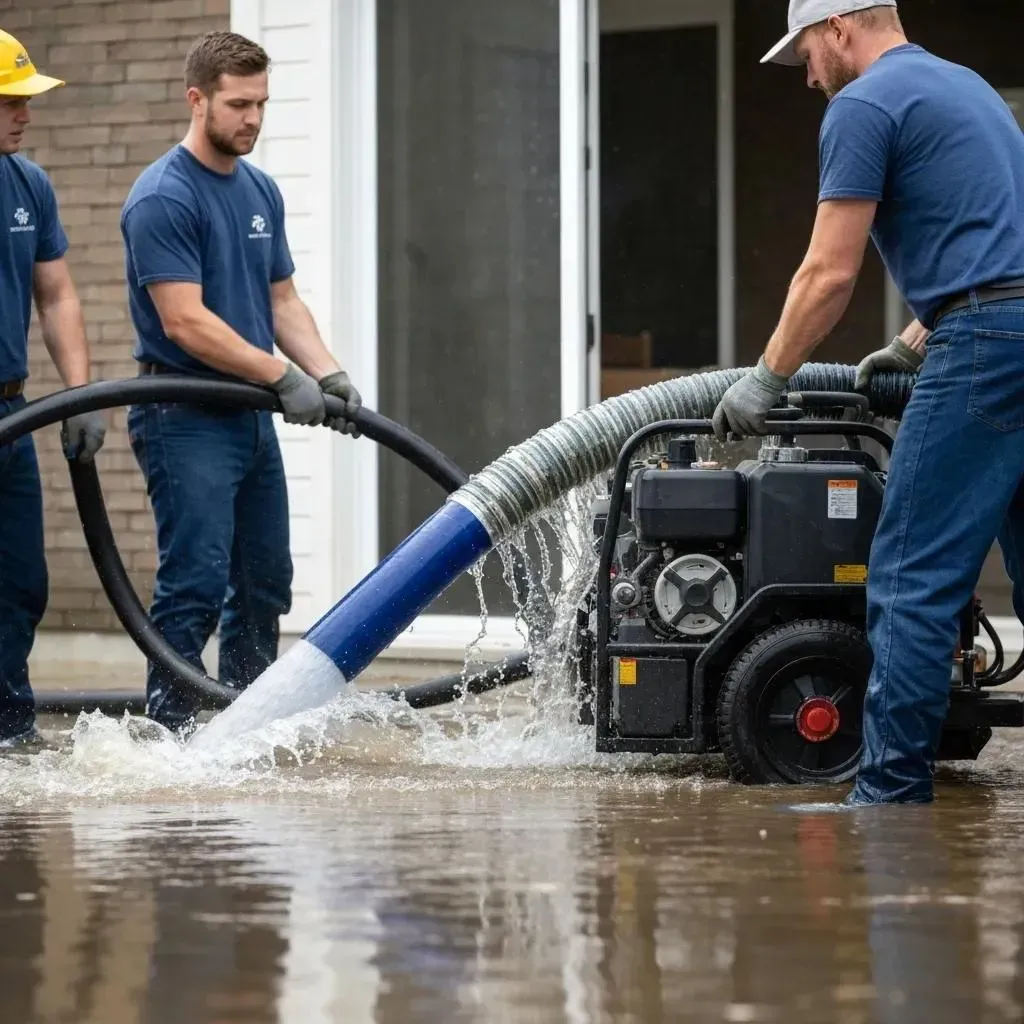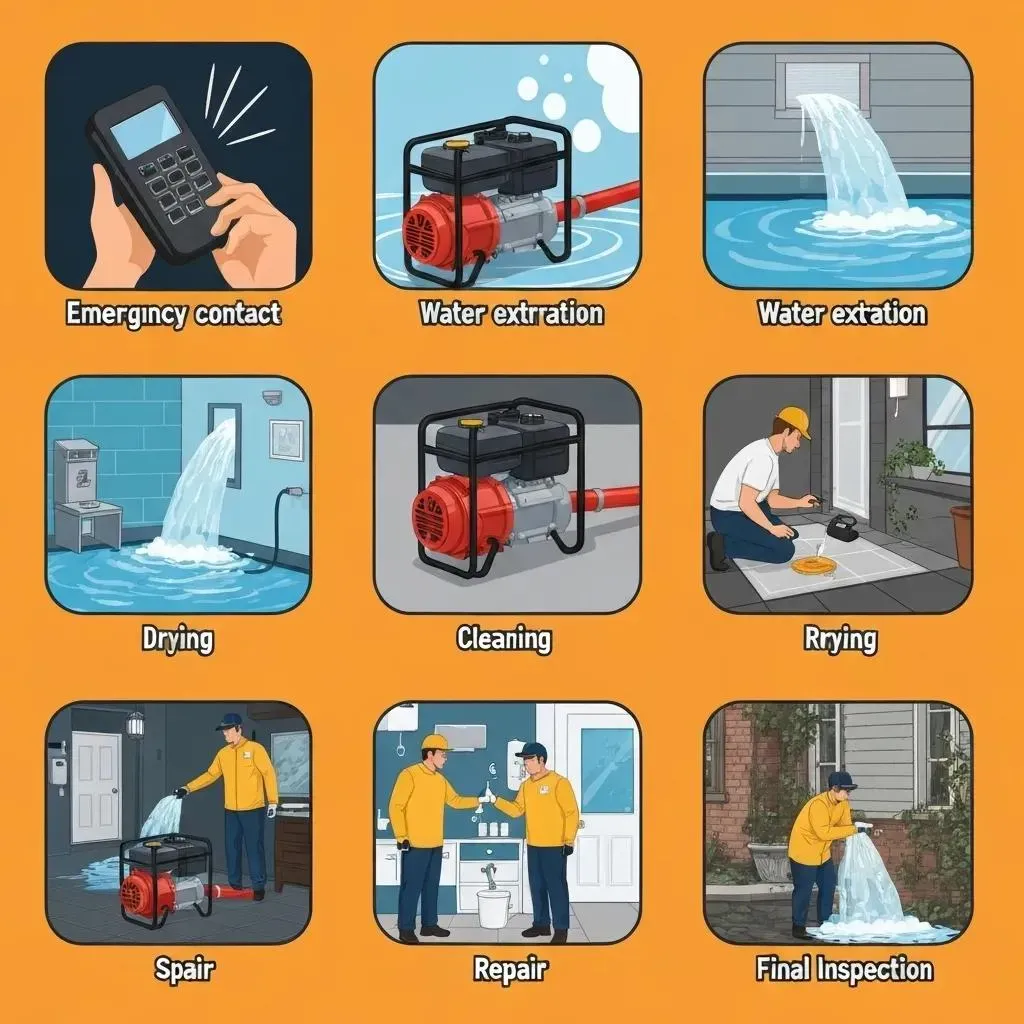Blog
Why 24-Hour Emergency Response Teams Are Your Safety Lifeline
When a pipe bursts at 1 A.M. or an electrical fire fills your living room with smoke, you can’t afford to “wait until morning.” Calling a 24-hour emergency response team activates a network of certified professionals who work while the rest of Denver sleeps, limiting damage and safeguarding your health.
Quick Answer: What Is a 24-Hour Emergency Response Team?
• Rapid water & fire mitigation crews with extraction equipment and thermal imaging
• Hazmat specialists trained to contain and remove chemicals safely• Mobile behavioral-health clinicians for mental-health crises
• True 24/7/365 staffing with GPS-based dispatch• Seamless coordination with local, state, and federal agencies
Every minute matters: mold starts in 24–48 hours, smoke etches glass within hours, and uncontained chemicals seep into soil almost immediately. Organizations like Anaheim Fire & Rescue and the DTSC Duty Officer program prove round-the-clock coverage isn’t optional—it’s the standard.
I’m Mike Martinez, owner of Accountable Home Services. My restoration crews work shoulder-to-shoulder with these teams across the Denver Metro area, turning stabilized scenes into fully restored homes.
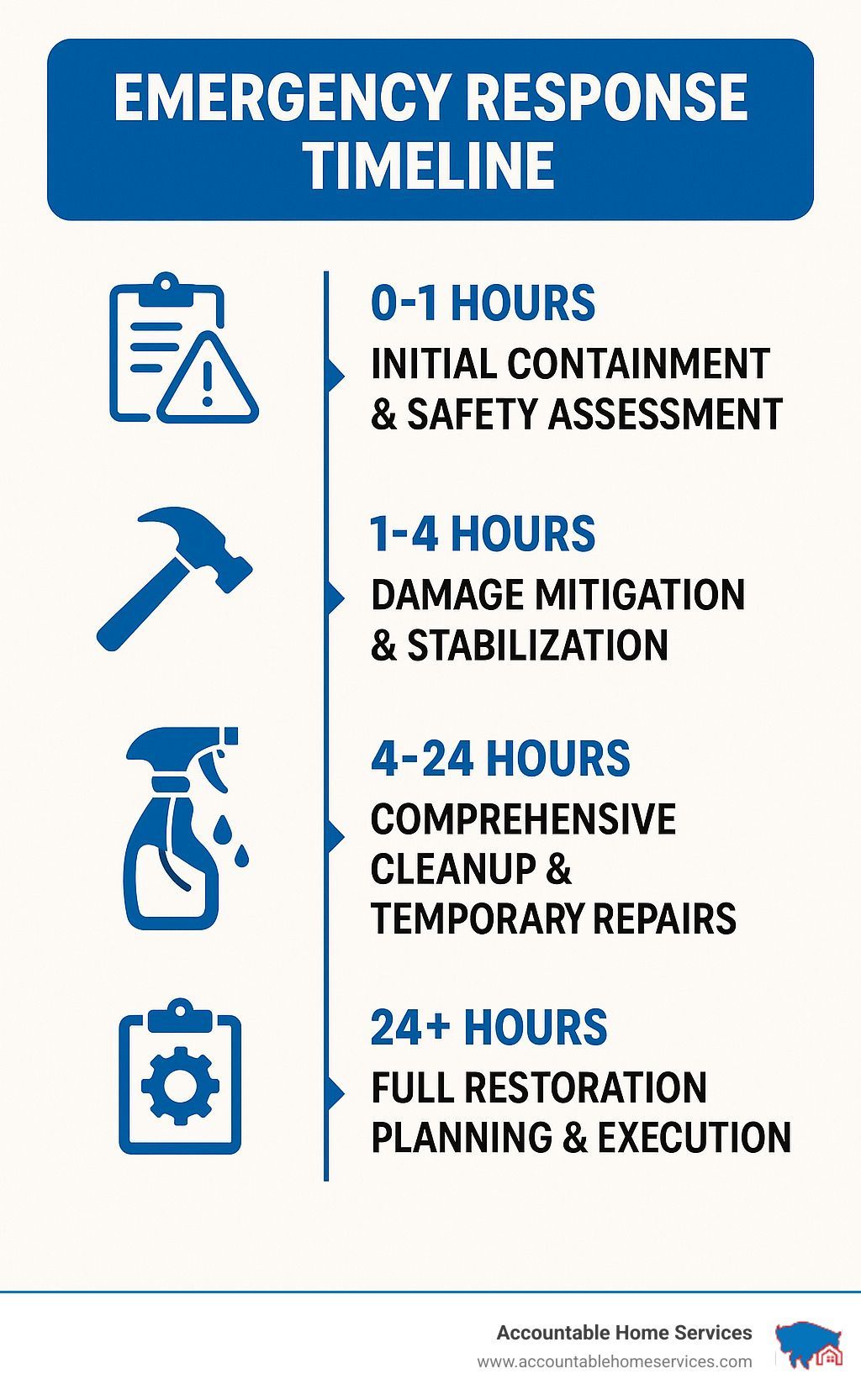
Why Every Minute Counts
Water spreads through drywall in minutes, wood flooring cups within hours, and smoke acids keep corroding metals long after flames are out. Acting fast slashes repair bills and protects your family from hidden health hazards.
How This Guide Helps
Use the sections below to learn exactly how 24-hour emergency response teams operate, which services they provide, and how to reach the right help anywhere in Denver, Westminster, or Boulder.
What Is a 24-Hour Emergency Response Team?
A 24-hour emergency response team is not a single crew but a coordinated network of experts on rotating shifts so someone is always ready to roll. Think firefighters with hazmat certifications, IICRC-certified water technicians, and licensed crisis clinicians—all backed by state and federal resources.
Defining a 24-Hour Emergency Response Team
• Staffed 24/7/365 (no answering services, real humans on call)• Equipped for immediate deployment—mobile labs, extraction trucks, PPE
• Members hold credentials such as Hazmat Technician, EMT, IICRC WRT/FSRT, or LCSW
• Dispatch uses CAD systems to alert multiple agencies instantly• Mutual-aid agreements let crews cross city and county lines when needed
Types of Emergencies These Teams Handle
- Hazardous material spills—from leaking pool chemicals at home to tanker-truck rollovers.
- Fires & smoke damage—residential, commercial, and wildfire impacts.
- Water & flood damage—burst pipes, appliance failures, storm flooding, sewage backups.
- Behavioral-health crises—mobile psychiatric response to keep situations from escalating.
- Structural or environmental threats—building collapse, suspected explosive devices, or large-scale contamination.
Whether you live in Arvada or Longmont, the same clock-work system makes sure help arrives fast and fully prepared.
From Call to Containment: The Emergency Response Protocol
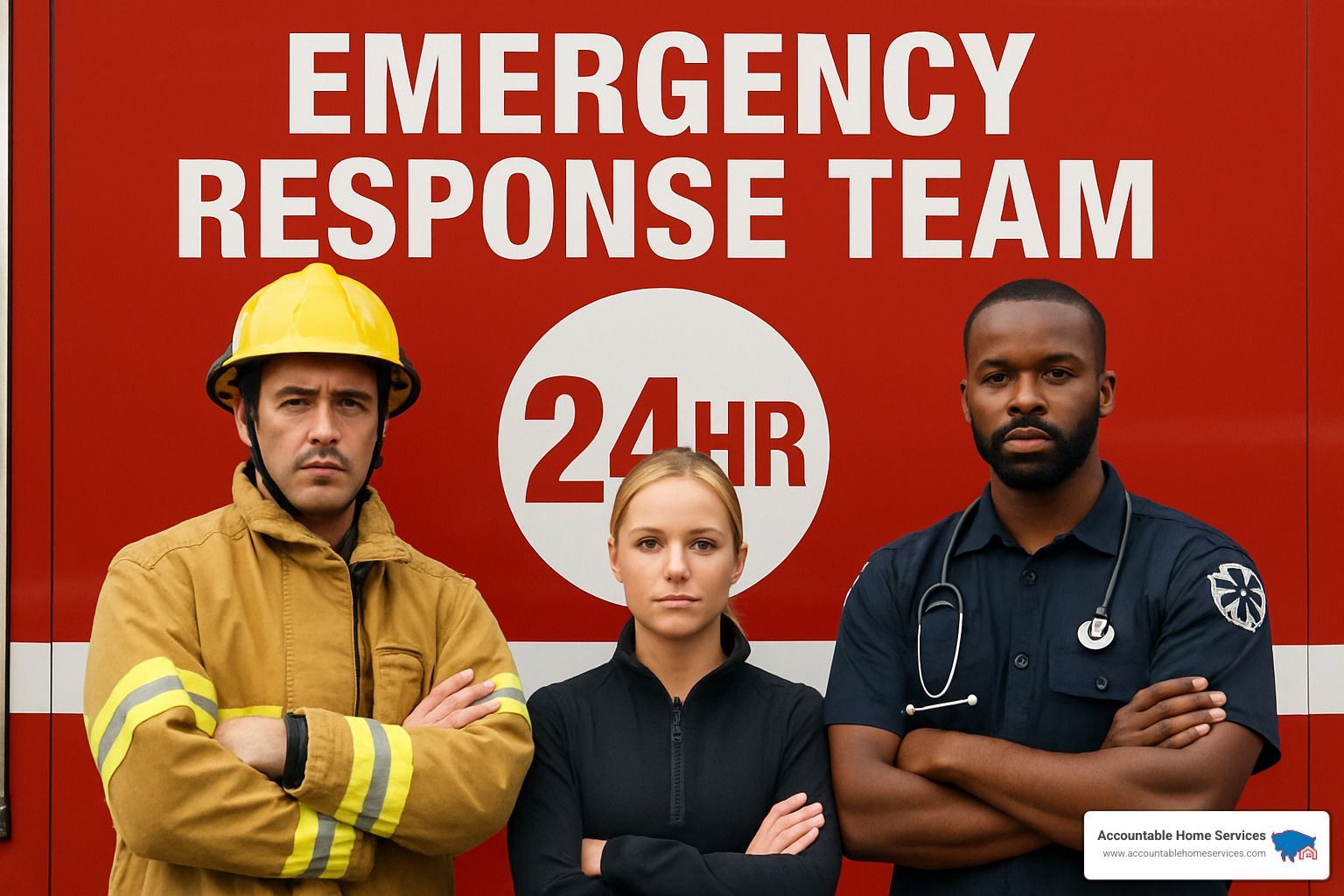
Step-by-Step: What Happens After You Dial 9-1-1
- Call Intake & Risk Assessment – Dispatchers gather location, hazards, and life-safety info in under a minute.
- Resource Deployment – CAD software pages the exact units—fire, hazmat, EMS, or crisis clinicians—closest to you.
- Scene Stabilization – First arriving unit establishes incident command, secures utilities, and begins containment.
- Specialist Support – County hazmat, state duty officers, or the National Response Center join if thresholds are exceeded.
- Documentation & Handoff – Actions, readings, and photos are logged for regulators and insurers, then restoration partners like Accountable Home Services take over cleanup.
Coordinating Multiple Players
The Incident Command System (ICS) lets local firefighters, FEMA, EPA, CERT volunteers, and Red Cross teams operate under one plan without confusion. Community volunteers trained through Ready.gov/CERT often provide traffic control, shelter support, or basic first aid so specialists can focus on technical hazards.
Core Services of 24/7 Responders
When the sirens fade, responders move from mitigation (stop the bleeding) to restoration (heal the wound). Here’s how that looks:
Water
Stop leak, pump out water, dry structure
Replace drywall, flooring, repaint
Fire
Board-up, soot wipe-down, odor control
Rebuild framing, content cleaning
Hazmat
Contain & neutralize spill
Soil remediation, regulatory clearance
Structural
Shoring & tarping
Full reconstruction
Water & Flood Response
Truck-mounted extractors, thermal cameras, air movers, and HEPA air scrubbers pull moisture before mold appears. Disinfection and moisture mapping prove the area is safe. Learn more about our Emergency Water Extraction Services.
Fire & Smoke Response
Immediate board-up protects against weather and theft. Technicians remove acidic soot, run air scrubbers, and deploy ozone or hydroxyl units for odor. We then transition to reconstruction—see our Fire and Water Damage Repair.
Hazardous Materials Spill Cleanup
Responders establish hot, warm, and cold zones, wear appropriate PPE, and use mobile labs for on-site identification. Certified contractors remove waste under government oversight. CHEMTREC offers 24/7 technical backup: Emergency Response | CHEMTREC®.
Behavioral Health & Crisis Care
Mobile crisis teams pair clinicians with law enforcement to de-escalate and link individuals to 24-hour walk-in or stabilization centers. Quick intervention keeps hospital ERs and jails from becoming default mental-health providers.
Technology, Training & Safety Measures
Qualifications & Certifications
• Hazmat Technicians & Specialists (CBRNE)• IICRC Water, Fire, and Mold certifications• EMT or Paramedic licenses• Licensed Clinical Social Workers for crisis care• Annual refreshers in ICS, OSHA, and NFPA standards
Equipment That Saves Lives
High-volume pumps, negative-air machines with HEPA filters, thermal imaging, gas meters, and mobile command apps let crews work faster and safer.
Protecting People, Property & Environment
Perimeter control, continuous air monitoring, and waste manifests prevent cross-contamination. Decontamination corridors and strict PPE protocols keep responders—and your neighborhood—safe.
Joining and Supporting the Response Network
How to Become a Team Member
Start with EMT school or a firefighter academy, then add IICRC or hazmat certifications. Expect background checks, fitness tests, and ongoing education like ICS-100/200. Entry-level pay ranges from $35k–$45k, with specialists earning more as skills grow.
Volunteering with Community Partners
Not looking for a new career? Red Cross Disaster Action Teams and local CERT programs need just 4–6 volunteer hours a month. Training covers basic first aid, light search-and-rescue, and family assistance—critical support that frees professionals for technical work.
FEMA offers free online courses, and Listos California grants help expand CERT in at-risk neighborhoods. No matter your skill set, there’s a place for you in the 24-hour safety net.
Frequently Asked Questions about 24-Hour Emergency Response Teams
How do I contact a team during an emergency?
• Life-threatening – Dial 9-1-1.
• Hazmat spill – Call 9-1-1, who will notify county hazmat and, if needed, the National Response Center.
• Behavioral-health crisis – Use your county’s 24/7 crisis line; many accept voice or text.
• Water or fire cleanup – Call Accountable Home Services directly for immediate dispatch and insurance coordination.
Who pays for response and cleanup?
Public agencies (fire, EMS) are tax-funded. Private restoration is usually covered by homeowners insurance. If another party caused the spill, regulators pursue cost recovery from them.
What details help dispatchers with a hazmat spill?
Exact location, substance name or description, quantity, weather conditions, and any injuries. Stay upwind/ uphill, keep people away, and never attempt DIY cleanup.
Conclusion
A burst pipe in Thornton or a late-night fire in Boulder doesn’t wait for business hours—and neither do we. By partnering with the 24-hour emergency response teams described above, Accountable Home Services delivers faster recovery, lower repair costs, and total peace of mind to Denver-area homeowners.
When minutes matter, call the professionals who are never off duty. Explore our full restoration services and add our number to your phone today so help is only one tap away.

